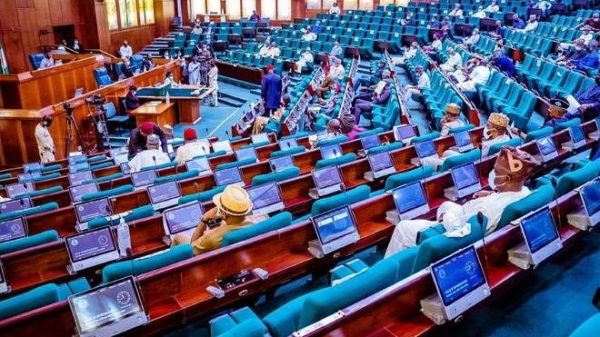By TechnocratMedia
The House of Representatives Committee on the joint ventures of the Nigeria National Petroleum Company Limited (NNPCL) has queried the review of the Escravos gas-to-liquid project from $2.9 to $10.7 billion.
NAN reported that the house committee said the project cost 2.9 billion dollars but was quoted as $10.7 billion on Wednesday in Abuja when the management of Chevron appeared before it.
Hassan Fulata, chairman of the committee demanded a full explanation and reasons why the project cost was reviewed upward.
Mr Fulata said a similar project was executed in Qatar for less than 2.5 billion dollars within a short period.
The lawmaker said the management of NNPLC should have protested the review and demanded a value-for-money audit.
Chevron’s Director of Joint Venture, Mr Monday Ovuede, in his response, said several factors caused the upward review of the cost of the project from the initial $2.9 billion to $10.7 billion, considering Nigeria’s peculiarities.
The director explained that immediately after the project was signed, prices of commodities like oil and steel went up, necessitating an upward review of the project.
He added that Chevron agreed to a value-for-money audit despite not having it in the contract for the project.
“This is a very complex technology to be executed in this part of the world. When project construction started in 2005— coincidentally, if you check the record, commodity prices, including that of oil and steel started rising in the international market.
“The project was given as engineering, procurement and logistics, which means the sum was fixed. In the course of executing the contract, the contractors came back,” he said.
Comparing Qatar to the Nigeria project, Mr Ovuede explained that the project was built in an industrial complex with a seaport and access to an international airbase.
He said there was access to skilled labours compared to Nigeria where such skills were hard to come by.
“The plant in Qatar is built in an industrial complex close to a seaport and there is an international airbase there.
“It has access to skilled labour from Europe, when you come to our side, we try to build—for some of the technology, we had to develop the local labour to the level required to implement the project,” he said.
The legislators were dissatisfied with his explanations and asked the Chevron management to submit documents to back the claims.
Ibrahim Isiaka, a member of the committee, moved a motion for Chevron to submit a written response justifying the increment.
In his ruling on the motion, Mr Fulata alleged that Chevron was claiming capital allowance for the project without capital importation or a certificate to make such a claim.
He directed Chevron management to re-appear before the committee on Tuesday, Oct. 11 with relevant documents to defend its claims.
Excellent journalism is expensive. It is only the same that can help to build our society and country to entrench good governance, and development and ensure justice for all.
We need your support for investigative findings and special reports to demand accountable and transparent government. DONATE today to help us stay relevant to serve your quest for accurate and authentic stories.
DONATE TO 0450702364, naira OR 0657626454, USD – GTBANK
TECHNOCRAT INNOVATIONS PLUS LTD
